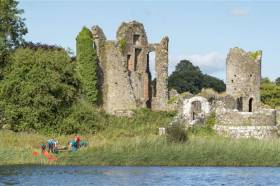Displaying items by tag: Lough Erne Landscape Partnership
The Lough Erne Landscape Partnership is recruiting for the full-time position of Heritage Project Manager, based in Enniskillen, Co Fermanagh.
The successful candidate will work closely with local project partners, taking the lead on developing and delivering a suite of projects within the Lough Erne Landscape Partnership.
This “exciting” role will enable the right candidate to deliver projects to promote, protect and conserve the built, cultural and natural heritage of the Lough Erne area on and off the waterway.
The closing date for applications is Sunday 27 January. An application pack containing all information on the post is available from the LELP website.





























































